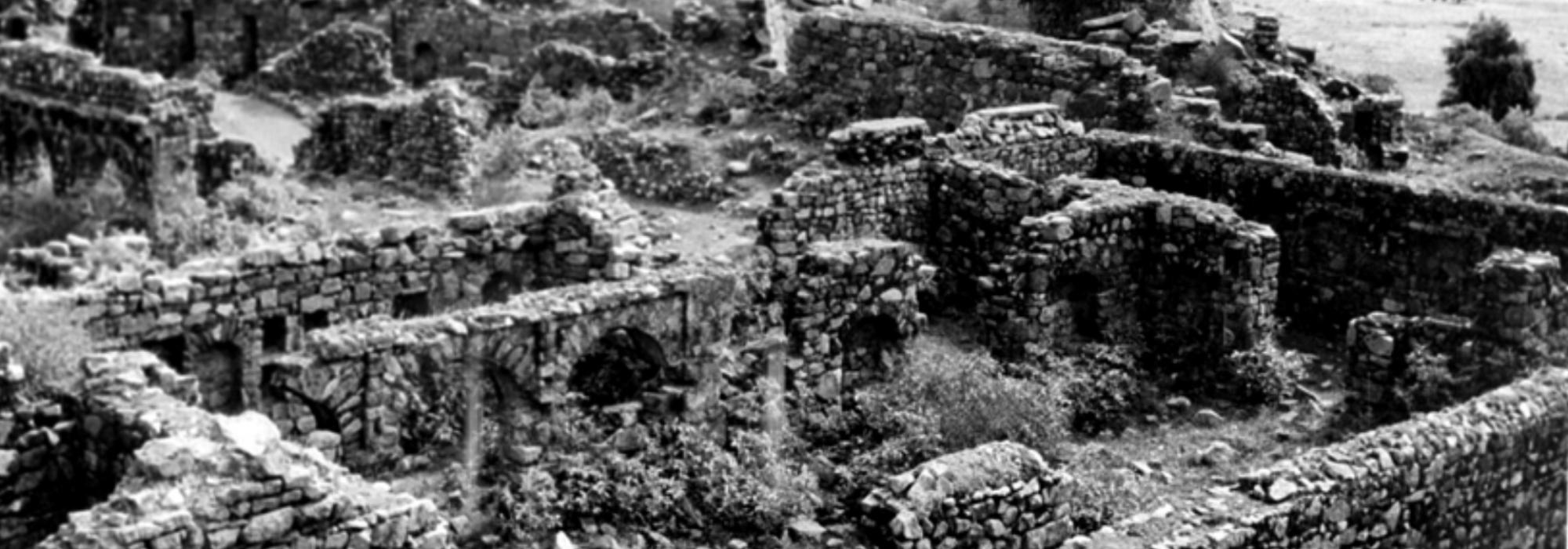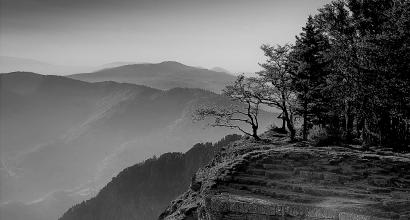Our 'leaders' and 'intellectuals' have turned a blind eye to the rampant whitewashing of the atrocities committed [by the Muslims]. And so, we can observe a few more aspects:
Just as Timur himself records, when he pillaged the town by name Dipalapura, he gave the order to kill ten thousand people within an hour and ensured that it was executed thus. He looted all the grains in every house and then set them all on fire.
He killed two thousand Jats and had the women and children captured only to be used later as slaves. He killed all the Rajput men he encountered and subjecting all the Rajput women and children to house arrest, he finally set all the houses on fire. He ordered the scholar, Maulana Nasir ud-din Umar, to kill fifteen idol worshippers and ensured it was carried out. This is just the tip of an iceberg.
Historians opine that Timur inflicted much more violence, bloodshed, and horror on the people of India than any other invader did, in a single invasion attempt.
Later, the Christian pirate Vasco da Gama, in a similar manner and to the best of his abilities, inflicted great violence on Indians. R C Majumdar has recorded even that in great detail.
The king of Kallikota (Calicut) in Kerala was Zamorin (Samudri). His name was Samudrasambhava or Samudrin, the corrupt form of which is 'Zamorin.' The government-appointed historians have cheated the Hindus through retaining these corrupt forms. Due to the constant and widespread usage of these corrupt forms, the reader will get the illusion that Zamorin was in no way connected to Sanatana Dharma. It is made to appear that he was a foreigner and that our people had somehow accepted him as their king and were living in peace. In such a backdrop, invaders like Vasco da Gama have been painted as 'visitors' and there is a veiled suggestion that one must see their voyage with magnanimity. Don't we see this blatantly happening, with historians hiding behind the corrupt version of Sanskrit words? Most of the kings of Kerala were either Brahmanas or Kshatriyas. King Samudri was afraid of Vasco da Gama's behaviour and mannerisms and he welcomed him in spite of that. The local Muslim traders opposed this. The local purohita was sent on a peace mission to assuage the fears of the traders and to convince them that Vasco da Gama had come merely for the purpose of trade. Within no time, the Portuguese attacked the Indian coast from Kerala to Goa. They gave divine sanction to this atrocity by christening it 'The Inquisition'! In the blood-soaked pages of history, one finds many such violent episodes.
Vasco da Gama dealt severely with the Hindus who opposed him; he would chop off the ears and noses and then have those boiled and fried, and force-fed to them. Once when a purohita went to him as an emissary, trying to broker peace on behalf of one of the local chieftains, Vasco da Gama had his ears, nose, and hands chopped off; putting those in a bag and sent it to the chieftain giving orders that he should be made to eat it. Once when a group of Hindus had come to offload spices to his ship, he forcibly retained them on board and had wooden spikes hammered on their mouths so that their teeth would break and fall into their throats. There is no end to his cruelty and violence. It was shameful to see that our own people celebrated the five hundredth anniversary of the evil Vasco da Gama's setting foot on India. R C Majumdar says that the Muslims alone never truly mixed with us; although the Shakas, Pahlavas, Kushanas, Greeks, and other people invaded India, they united with the Hindu culture. The reason for this being that none of the latter were 'people of the book.' Adherents of Islam and Christianity are 'people of the book.' How can one lead a normal life with barbaric cults such as these, which are confined to holy book-prophet-revelation-faith-eternal hell-heaven to believers-revenge of god-blindness of envy?
The adherents of these cults believe in only one god, only one book, and only one prophet. Is it possible ever to live in harmony or reconcile with people like this who think that everyone else is a sinner and a bigot, and that all other gods are devils?
"The Muslims, however, did not merge themselves into this pattern, and form with the Hindus a single type of homogeneous culture. So, for the first time in Indian history, two distinct but important communities and cultures stood face to face, and India was permanently divided into two powerful units, each with marked individuality of its own, which did not prove to be amenable to a fusion or even any close permanent co-ordination. The problem which then faced India has proved to be the most knotty one in its chequered history during the next six hundred years, and has not entirely been solved by the partition or bifurcation of India... It is a delicate and difficult task, but could not be avoided in a history whose avowed object is to give a real picture of the history and culture of the Indian people." When we see the wicked political leaders of our country, our fraudulent intellectuals, and deceitful media waxing eloquent about the cults of Christianity and Islam, pandering to their whims, it surely causes fear and anxiety in the hearts [of Hindus] with the thought that yet another partition (or more) of the country is imminent.
"Political necessities of the Indians during the last phase of British rule underlined the importance of alliance between the two communities, and this was sought to be smoothly brought about by glossing over the differences and creating an imaginary history of the past in order to depict the relations between the two in a much more favourable light than it actually was."
The slogan of "Hindu-Muslim Bhai Bhai" should have been built on the solid foundation of the truth. If one has to build anything on the foundation of truth, then one has to mercilessly keep aside sectarianism. Even today, naive and foolish Hindus along with Muslim historians and apologists for Islam say "There might be a problem with Muslims, but not in Islam, not in the Qur'an." But the truth is that the poisonous seeds of sectarian fanaticism are in Islam — either they are unaware of this, or they have forgotten this, or they act as if they have forgotten.
"Eminent Hindu political leaders even went so far as to proclaim that the Hindus were not at all a subject race during the Muslim rule. These absurd notions, which would have been laughed at by Indian leaders at the beginning of the nineteenth century, passed current as history owing to the exigencies of the political complications at the end of that century. Unfortunately slogans and beliefs die hard, and even today, for more or less the same reasons as before, many Indians, specially Hindus, are peculiarly sensitive to any comments or observations even made in course of historical writings, touching upon the communal relations in any way. A fear of wounding the susceptibilities of the sister community haunts the minds of Hindu politicians and historians, and not only prevents them from speaking out the truth, but also brings down their wrath upon those who have the courage to do so. But history is no respecter of persons or communities, and must always strive to tell the truth, so far as it can be deduced from reliable evidence. This great academic principle has a bearing upon actual life, for ignorance seldom proves to be a real bliss either to an individual or to a nation. In the particular case under consideration, ignorance of the actual relation between the Hindus and the Muslims throughout the course of history,—an ignorance deliberately encouraged by some,—may ultimately be found to have been the most important single factor which led to the partition of India. The real and effective means of solving a problem is to know and understand the facts that gave rise to it, and not to ignore them by hiding the head, ostrich-like, into sands of fiction."
These volumes of history have been made with a quest for truth, says Majumdar. "It would be the endeavour of the present editor to follow the three fundamental principles enunciated above:
1. history is no respecter of persons or communities,
2. its sole aim is to find out the truth by following the canons commonly accepted as sound by all historians, and
3. to express the truth, without fear, envy, malice, passion, or preiudice, and irrespective of all extraneous considerations, both political and humane."
"This editorial policy is responsible for clearly bringing out in detail those points of difference which stood as barriers between the Hindus and Muslims and served to keep them effectively as two separate units in their common motherland. These are primarily the religious bigotry on the side of the Muslims and social bigotry on the part of the Hindus. These differences are generally sought to be explained away or minimised, and even eminent scholars demur to pointed references to the oppressive acts of bigoted Muslim rulers like Firuz Tughluq and Sikandar Lodi even though proved by the unimpeachable testimony of their own confessions. Such an attitude may be due to praiseworthy motives, but is entirely out of place in historical writings."
Ibn Batuta writes about Muhammad bin Tughlaq, "He would train elephants by tying knives to their trunks. He would train them to obey commands as to whom to kill." His misadventures of shifting his capital from Delhi to Devagiri and then back to Delhi from Devagiri are well-known. For ten long years he subjected the people to untold cruelty and pain. The bigotry and cruelty that Muhammad bin Tughlaq inherited from his father Ghiyasuddin, he successfully passed on to his fanatic son Firoz Shah Tughlaq. Some people have put forth theories based on flimsy pieces of hearsay that Muhammad bin Tughlaq was a scholar and a tolerant ruler. But Ibn Batuta who knew him for decades writes that he was a jihadist Muslim with bigoted tendencies. He has given a long list of the atrocities he committed all around his kingdom and the sort of ghastly acts that he would undertake on a daily basis in Delhi. Like Majumdar says, irrespective of whether the Muslims were ruling or not, they never let go of their Islamic jihad and their fanaticism-cruelty. While studying history, we should never forget this.
Earlier to this period, one of the generals of Alauddin Khilji was Malik Kafur. Malik Nabi Kafur (with the surname of Kafur) was originally a Hindu. He was forcibly converted into Islam. He could not reconvert into Hinduism. And he took revenge for this. He was given an exalted position and sent to South India with a huge army.

















































